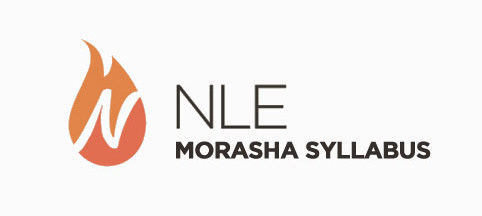
If your brother becomes destitute and his ability to support himself falters beside you, you shall strengthen him, whether a convert or a resident, so that he can live with you. (Vayikra 25:35)
******************
In February 2010, Alejandro Ergas, a 40-something businessman, was at home in Santiago when a massive earthquake struck Chile, leaving hundreds dead and hundreds of thousands homeless. In response, community leaders got together to plan relief efforts. As their discussions dragged on for three days with no practical response, Ergas couldn’t take it any longer. He loaded up a small truck with rice, water and mattresses, and along with his 16-year-old son drove eight hours south to the epicenter. They distributed the truckload of goods to the victims and drove back. “Maybe it wasn’t the most efficient way to help,” Ergas says, “but it made an impression on me that I’ll never forget.” The experience spurned Ergas to evaluate his own attitude toward Tzedakah – charitable giving. “For years, my idea of Tzedakah was to write a check and send it in the mail,” related Ergas. “But as I got more involved, I realized that Tzedakah does as much for the giver as it does for the recipient. A rabbi will typically speak about Tzedakah on Yom Kippur, when making an appeal for the synagogue or Israel Bonds. But there is so much more beauty and wisdom in our tradition that is not being communicated.” (Rabbi Shraga Simmons, Yom Tzedakah, aish.com)
****************
Chesed (practicing kindness) is one of the foundations of Jewish life that enables the very continuity of mankind and the world (Avot 1:2). The mitzvah of providing Tzedakah is one of the primary expressions of Chesed. As such, it is also a fulfillment of the mitzvah of emulating the ways of God (Devarim [Deuteronomy] 10:12) as well as “And you shall love your fellow as yourself” (Vayikra [Leviticus], 19:18) – whatever you would want done for yourself, you should do for others (Rambam, Hilchot Aveil [Laws of a Mourner] 14:1).
Practicing kindness can be accomplished through various forms: inviting and escorting guests, visiting the sick, bringing joy to a bride and groom, burying the dead, as well as Tzedakah. Tzedakah is a form of Chesed that is accomplished exclusively by giving money. Since mitzvot come to forge our relationship with God and refine human character, how do these goals relate to the use of money?

Rabbi Avraham Chaim Feuer (The Tzedakah Treasury, p. 109) explains that God purposely created a world filled with opportunities to give Tzedakah for humanity to develop compassion:
“God has no lack of resources. He could easily have created a world of universal wealth, wherein everyone was wealthy and no one was poor. Why did He not do so? This question was posed to God by King David. The Midrash records the following dialogue based on a verse in Psalms 61:8. David said to God, ‘Equalize Your world! Why must there be such a huge economic disparity between the rich and the poor?’ God replied: ‘If I make all people economically equal, who will practice kindness and charity?’
“Rabbi Yerucham Levovitz of Mir explained: God did not create the precept of charity because he saw that there were poor people in the world who needed help. Rather, the exact opposite is true. God purposely created poor people in order to give people of means an opportunity to fulfill the mitzvah of Tzedakah. A world devoid of opportunities to show kindness to others is inconceivable; compassion is the purpose of this world.”
Rabbi Shlomo Wolbe writes in Alei Shur (Volume II, p. 198) that giving Tzedakah challenges us to learn to understand what another person truly needs:
“There are no objective standards in the field of Tzedakah. Just as people differ in their personalities, so do their needs differ. Someone who wishes to be a true practitioner of loving-kindness must train himself to see and listen to what the other is lacking.”
The NLE Morasha shiur on the Power of Tzedakah addresses the following questions:
- If God doesn’t want there to be poor people, then why doesn’t he take care of them Himself?
- How much Tzedakah am I supposed to give and to whom?
- Is there an ideal form of charity? If so, what is it?
- Which is considered more precious: giving the poor one thousand dollars, but with a frown; or greeting someone with a smile but not giving any Tzedakah?
- What benefits accrue to the one who gives Tzedakah?
Click here to download the NLE Morasha shiur on the Power of Tzedakah.



















